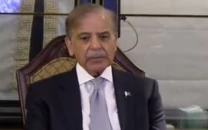Agri sector: solving the implementation impasse
Agriculture sector this year has been poor with a fall in production of most major crops and overall growth of 0.56%

Agriculture is a critical sector of the economy providing jobs, food and export revenues. It is likely to maintain its key role particularly as manufacturing and services sectors, which have led development in many other countries, have not grown as they should have.
Unfortunately, performance of the agriculture sector this year has been poor with a fall in production of most major crops and overall growth of 0.56%. In part, this was due to the unfavourable weather, with drought-like conditions and high temperatures in most parts of the country. In part, it was also due to the speed of reforms of the corrupt and inefficient wheat procurement system — reforms that were long overdue but maybe needed more time and better preparation.
To get agriculture back on track, further reforms are needed such as liberalising domestic and international trade in both products and inputs. At the same time, the billions that were being spent on wheat procurement need to be redirected to neglected areas such as research and extension, promotion of agri-tech companies, land consolidation and use of new areas where cultivation is possible, albeit intermittently, due to climate change. If needed, further resources could be mobilised by reforming or privatising other inefficient government enterprises, such as the provincial seed companies and livestock farms.
However, these changes, unlike policy reforms, require strong implementation capacity. And, to anyone familiar with development efforts in Pakistan, implementation remains our Achilles heel. Provincial Government departments dealing with agriculture, livestock and fisheries are weak with the bulk of expenditures going on salaries of support staff; senior management staff that are rotated in and out of the concerned departments at a breakneck pace; and technical experts who are mostly out of touch with modern agriculture techniques.
At the same time at federal level, the Ministry of National Food Security and Research is understaffed and weak. In past years, it has made several blunders, including mismanagement of Pakistan imports and exports of essential foods such as wheat and sugar, with severe consequences on market supplies and prices.
The unfortunate truth is that as long as Government and development partners continue to use inefficient and corrupt public institutions as their main partner, implementation will be slow and ineffective.
But are there other implementation partners whose can be drawn in to ease the lack of implementation capacity? The answer is a resounding yes.
First and foremost, there are farmers themselves. There is a pressing need to get farmers, especially small and medium farmers, to be much more involved in defining and implementing development initiatives. There is much experience to draw on, from inside and outside Pakistan, on the benefits of participatory development including for construction of local infrastructure. Such activities ensure relevance to local needs, better O&M and possibilities of cost sharing. And such involvement of beneficiaries need not — in fact, should not — stop at the farm gate but include other actors along the value chain such as traders, wholesalers, processors and transports.
The next set of actors to bring more into the process are the private sector - and here we mean the medium and large enterprises that produce, import and supply inputs to the farmers; harvest, transport and process their output; provide them machinery service as well as credit and loans when needed; and help them with market information.
Too often, some of these actors have been vilified as being exploitative, but they are an essential part of the agricultural eco-system, have deep knowledge and often deep pockets. An emerging and dynamic group are the new agro-tech entrepreneurs. These are mainly tech and financially savvy young people who see the inefficiencies in the agricultural sector as an opportunity rather than a problem and are investing money and skills.
The third set of actors are the various NGOs that work in agriculture and rural development. Pakistan has a long history of active NGOs. Of note are the pioneering efforts by Akhtar Hameed Khan and subsequently by the Aga Khan Rural Support programme. Building on the work of these champions, rural support programmes have been set up at national, provincial and local level and several of these have come together to form a National Rural Support Network which promotes joint learning, assessment of experience and advocacy for a more "people driven" form of development.
The fourth set of actors whose involvement needs to be enhanced are experts outside the country. These include people in universities, think-tanks and research institutions in the region and around the world, as well as the diaspora several of who have worked in top institutions such as the World Bank, the Asian Development Bank and the UN.
These actors need to have been given a greater role in direct implementation. Moreover, coming together they can try to find innovations, learning as necessary from experience in other areas, particularly health and education. In these two areas, the private sector has played a key role, for example, in providing both fee paying and free services to people, including in remote areas.
In addition, NGOs have played a major role, and bold experiments are underway such as allowing these NGOs to run Government schools and hospitals. Similarly, charitable organisations such as Edhi have become an essential pillar of most urban landscapes providing ambulances, funeral services and even care for abandoned animals. Last but not least, there are institutions such as Kaarigar and the vocation centre initially set up by Aman Foundation and now managed by Hunar Foundation, that work to build skills for underprivileged groups.
In addition, these new actors should be involved in strengthening the Governance systems that guide and oversee the development effort. For example, they need to be part of the boards of the public research institutions, serve as advisors to chambers of commerce, and above all have access to top policymakers such as the Prime Minister, the Chief Ministers of the provinces, and ministers of agriculture at federal and provincial levels.









1733130350-0/Untitled-design-(76)1733130350-0-208x130.webp)




COMMENTS
Comments are moderated and generally will be posted if they are on-topic and not abusive.
For more information, please see our Comments FAQ